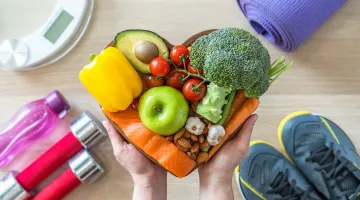Teen Substance Use and Risks: Establishing Healthy Behaviors Early
Author

South Shore Health
Adolescence – sometimes just seeing or hearing this word makes people cringe, as it brings back memories of awkward or difficult years gone by.
Adolescence is a time of important physical, emotional, and personal growth. However, it also can feature difficulties fitting in, peer pressures, academic pressures, and constant physical changes.
All of these factors combine to make young people less confident in themselves and less confident in the decisions that they make.
The teen years are also a prime time for trying new things and asserting independence – alcohol and drugs frequently become involved in this mix as a means of coping with stress, relating to peers, or as a way to assert authority.
Technology and teen alcohol/drug use
Technology has also changed the way teens are exposed to alcohol and drugs, posing an additional challenge for parents.
For example, peer pressure increases when teens see their friends at a party on social media, and technology has made it easier to purchase illicit substances as well.
In addition, as this graphic from the United States Drug Enforcement Agency (DEA) illustrates, messaging apps and other social networks can be used by teens to discuss and purchase drugs in a way that seems innocent enough at first glance:
It’s important for parents to be aware of who their teens are hanging out with and to know the signs and language of potentially risky behavior.
Statistics about teens and alcohol/drug use
Statistics show that as many as 1 in 8 teenagers has abused an illicit substance in the last year, with alcohol as the most commonly abused substance among teens and young adults.
In Massachusetts, teenagers are 33.7% more likely to have used drugs in the last month than the average American teen.
Massachusetts teens are also 19.1% more likely to use alcohol than the average American teen.
The importance of talking with your teens about alcohol and drugs
Consequences of teen drug use include an increased risk of drug dependence, poor judgment, high-risk sexual activity, behavioral health disorders, poor school performance, and impaired driving.
These consequences illustrate the fact that teens who experiment with drugs and alcohol put their health and safety at risk, making it essential to warn your teens of the dangers.
Despite what parents may think, children and teens hear what their parents tell them when it comes to using substances!
While it may seem like your teens are brushing you off, they really do process the information.
Because of that, it’s important to discuss the risks of using alcohol and other drugs with your teens whenever the opportunity arises.
Car rides to and from school or sports, family dinners, and other seemingly innocuous moments offer a great chance to connect with your teen and get the message across.
Taken as a whole, extracurricular activities, positive relationships, parental support, and the ability to teach self-efficacy gives teens the confidence they need to make good decisions about drugs and alcohol use.
Preventive strategies for parents and caregivers
- Talk to your teen about drugs and alcohol: Do not avoid the hard conversations! Ask your teen their views and discuss reasons not to use drugs or alcohol.
- Discuss ways to resist peer pressure: Brainstorm with your teen about how to turn down offers of drugs and alcohol. Practice the dialog to get them comfortable with saying "no."
- Know your teen’s activities: Pay attention to their whereabouts. Find out what adult-supervised activities interest your teen and encourage them to get involved.
- Establish rules and consequences: Explain your family rules, such as leaving a party where drug use occurs and not riding in a car with a driver under the influence of drugs and alcohol. Enforce consequences when these rules are broken.
- Establish healthy habits: Exercise and extracurricular activities, helping out in the community, and having a job/commitment can help a teenager cope with difficult situations.
- Know your teen’s friends: If your teen’s friends are using drugs/alcohol, your teen is going to feel pressure to do so as well.
- Provide support: Offer praise and encouragement when your teen succeeds, especially when it involves making responsible choices about drugs and alcohol. A strong bond has been shown to help teens make healthy choices.
- Set a good example: Drink in moderation and don’t abuse prescription drugs or use illicit drugs.
This post was written by the Trauma Program Injury Prevention Team. Learn more about Injury Prevention at South Shore Health.
Author

South Shore Health








